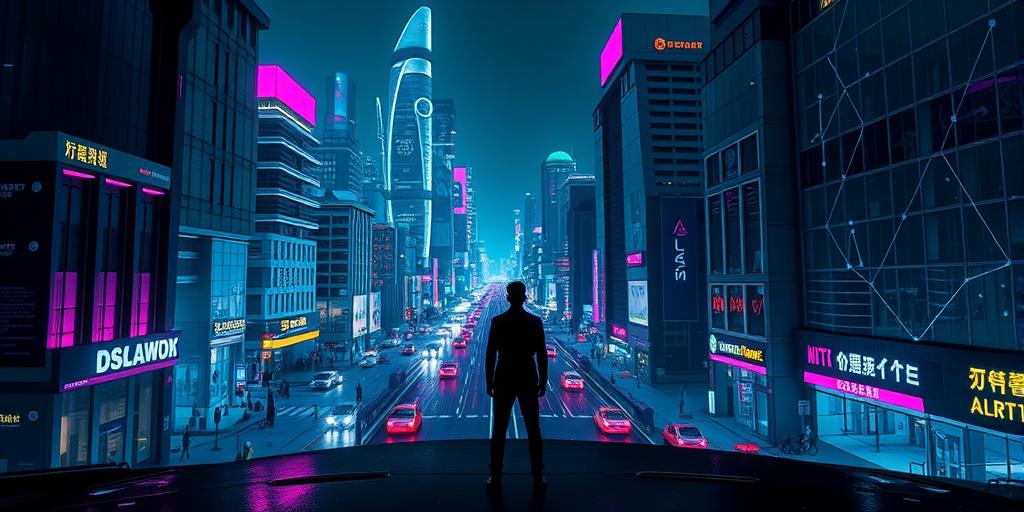Is AI about to steal your job as a content writer? The rise of artificial intelligence in content creation has sparked a heated debate. Some hail AI as a revolutionary tool, promising unprecedented efficiency and productivity. Others fear it as a job-stealing monster, poised to render human writers obsolete. But the truth, as always, lies somewhere in the middle. This article delves into the critical analysis of AI’s role in content creation, exploring both its transformative potential and its limitations. We’ll uncover how AI is changing the content landscape and what it means for the future of writing.
AI: The New Content Creation Powerhouse?
AI-powered tools are rapidly transforming how content is created, offering unprecedented capabilities. From generating blog posts and articles to crafting compelling social media updates and marketing copy, AI is proving its versatility. These tools excel at tasks requiring speed and efficiency, such as drafting basic outlines, generating initial drafts, and even translating text. However, this doesn’t mean human writers are suddenly irrelevant. AI’s strengths lie in its ability to automate repetitive tasks, freeing up human writers to focus on higher-level creative work like developing unique concepts, adding nuanced insights, and ensuring consistent brand voice. Think of it as a powerful collaboration – AI as the efficient assistant, and the human writer as the visionary director. This collaboration between humans and AI is leading to increased content quality, resulting in more consistent and engaging content.
AI’s Strengths in Content Creation
AI shines in several key aspects of content creation. Its speed is unmatched, allowing for rapid content generation and high productivity. AI can also analyze large datasets to understand trends and preferences, optimizing content for maximum impact. Furthermore, AI tools can automate tedious tasks such as proofreading, editing, and formatting, ensuring high-quality outputs. AI’s capabilities aren’t just limited to text; it can also generate images, videos, and other multimedia assets, expanding content options significantly.
AI’s Limitations
While AI offers impressive capabilities, it’s crucial to acknowledge its limitations. One major drawback is the lack of originality and creativity. AI tools often struggle with generating unique and insightful content that truly captures the human experience. AI also lacks emotional intelligence and empathy, making it difficult to create content that resonates deeply with readers. Furthermore, over-reliance on AI-generated content can lead to a homogenization of style and voice, resulting in dull and uninspired pieces. Ethical considerations, such as plagiarism and bias in AI-generated content, also need careful attention.
Human Writers: The Irreplaceable Element
Despite the advancements in AI, human writers remain indispensable. The human touch is essential for creating genuinely engaging and impactful content. Our creativity, emotional intelligence, critical thinking, and unique perspectives cannot yet be replicated by AI. Human writers add value by infusing content with emotional depth, nuanced perspectives, and critical insights. They can connect with audiences on an emotional level, creating content that is not just informative but also inspiring, motivational, and transformative. This ability to connect on a human level is something that even the most advanced AI systems currently lack.
The Future of Content Collaboration
The future of content creation will be defined by collaboration between humans and AI. AI will handle the tedious and repetitive tasks, freeing up human writers to focus on higher-level creative work, strategic planning, and ensuring the content’s emotional resonance. This collaboration will drive efficiency, allowing for faster content creation while retaining the originality and emotional impact of human-written content. The focus should be on harnessing AI’s power to augment human capabilities, not replace them entirely.
Navigating the Ethical Landscape of AI Content Creation
The rise of AI in content creation raises significant ethical considerations. One primary concern is the potential for plagiarism. It is crucial to use AI tools responsibly, ensuring originality and proper attribution. Another challenge lies in the potential for bias in AI-generated content, as AI algorithms are trained on data that may reflect existing societal biases. Developing strategies to mitigate bias and promoting ethical AI practices will be critical for ensuring responsible and equitable use of AI in content creation. Transparency and accountability are crucial in this emerging field.
Embracing AI to Enhance Human Creativity
Rather than seeing AI as a threat, we should embrace it as a powerful tool to enhance human creativity. By leveraging AI’s strengths and compensating for its limitations, we can achieve unprecedented levels of content quality and efficiency. This partnership between human ingenuity and AI capabilities opens up a vast array of opportunities, driving innovation and improving the overall content landscape. The key is to utilize AI strategically, using its capabilities to enhance and amplify the human touch, leading to content that is both effective and engaging.
Use AI tools to streamline your workflow, free up your time for strategic thinking, and ensure accuracy. Don’t let fear hold you back – embrace the future of content creation and unleash your full creative potential with the help of AI. The future of content isn’t about AI vs. humans; it’s about AI and humans working together!




